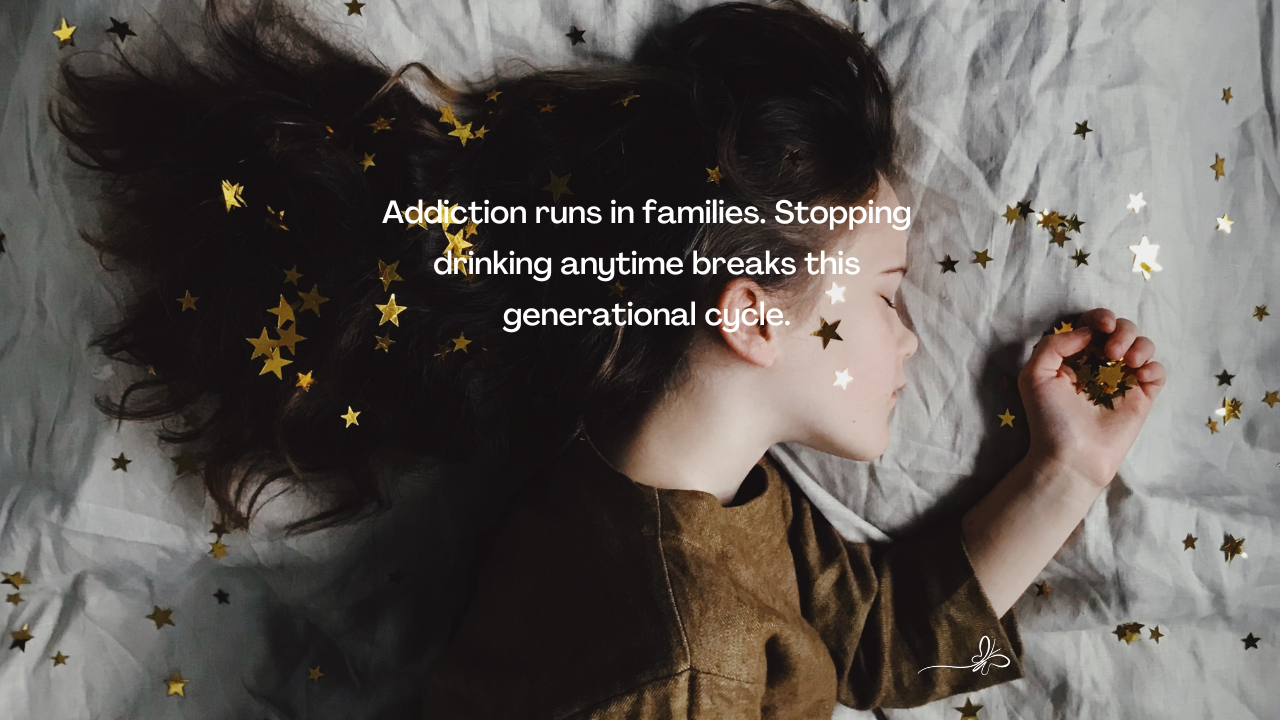Dealing with a Loved One’s (Child) Addiction

I have lived through a child’s addiction and know it is heart-wrenching. Addiction runs in families, and children are at extremely high risk of developing addiction and mental health challenges. If you are struggling with a loved one’s addiction, you are more powerful than you realize to influence change. The same applies to siblings, partners, parents, and other loved ones.
Three Common Traits of Children of Alcoholics
- Children (and adults) raised in alcoholic homes are used to unpredictability, and they have difficulty trusting others and their environment. Acting-out behaviours are rooted in anger and fear, and their world is one of confusion. Understanding this helps to build empathy. Instead of thinking, “what is wrong with her"; reframe it to, “what happened to her.”
- The fear of abandonment is very real to children in alcoholic homes, and this causes poor boundaries, low self-esteem, and an increased sense of responsibility. In single-parent families, they may feel responsible for siblings, the home, and even the alcoholic.
- Children judge themselves harshly and feel very powerless in their situation. As adults, they may take on the blame for problems that aren’t theirs and may become either overly responsible or the exact opposite.
As a parent, here are six things that I have learned.
- Acceptance. First, admit to yourself there is a problem. It is a relief. Denial is crazymaking. I know. I did it all. I justified. Covered up. Lied. Felt like I was losing my mind. Then laid awake frozen with fear when my son didn’t come home at night.
- Forgiveness. Break the cycle of toxic self-judgment. You must. Otherwise, parenting is from a place of fear and guilt. It sounds harsh, and that’s because it is. Be kind to yourself. And when you make a mistake, lighten up. Apologize, move on, and learn from it. Nobody is perfect. Leave the past where it belongs. In the past.
- Awareness. Recognize that our children can trigger our unhealed wounds. For example, when I first got sober, my son once dropped a glass of milk, and I had to leave the house because I felt enraged. When something or someone triggers you, stop and pay attention to what is happening inside you rather than focusing on the other person, and learn how to identify and manage your emotions. Taking care of yourself empowers you, grows you up, and gives you confidence.
- Letting go. You cannot force anyone to get help. It doesn’t work. Believe me. I tried everything. Also, recognize when you are caretaking and enabling your child’s addiction. Letting go with love is easier said than done. But as I learned to let go more and more, it allowed my son to experience the consequences of his actions. This practice was more effective in moving him toward quitting than me always picking up the pieces. If this resonates, I can’t say enough about AlAnon. It saved my life and possibly my son's.
- Educate. Educate yourself and your children on addiction. Research indicates that genetics are responsible for approximately 50 percent of the risk for addiction. This risk increases when both parents have an addiction. Addiction lives in families and is passed down through the generations. The moment anyone in the family stops drinking, it breaks this generational cycle!
- Respect. Focus on the relationship rather than the behaviour. Developing a healthy relationship with your children is based on respect. Explain that you love them but not their acting out behaviour. Equally, do not accept unacceptable behaviour. Set realistic boundaries that you can follow through with instead of acting impulsively, and you will gain their respect, whether they continue to use or not. At the end of the day, what works best is love. Unconditional, never stop loving LOVE.
If you are thinking about quitting and have been drinking large quantities of alcohol for a significant time, withdrawal symptoms can be life-threatening. Please talk to your doctor and seek medical care as you go through the detox process. It is important to note that addiction may also mask mental health disorders that someone is drinking to self-medicate, such as depression or anxiety.
Next GendHer Intake
Keep me updated

